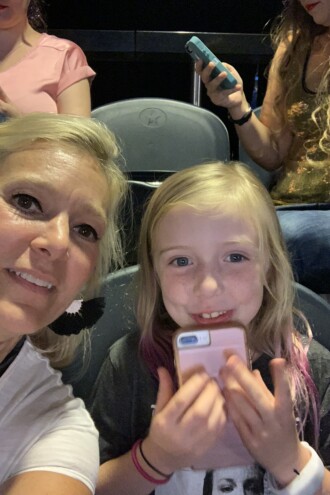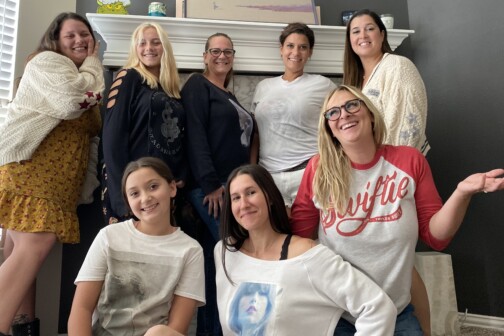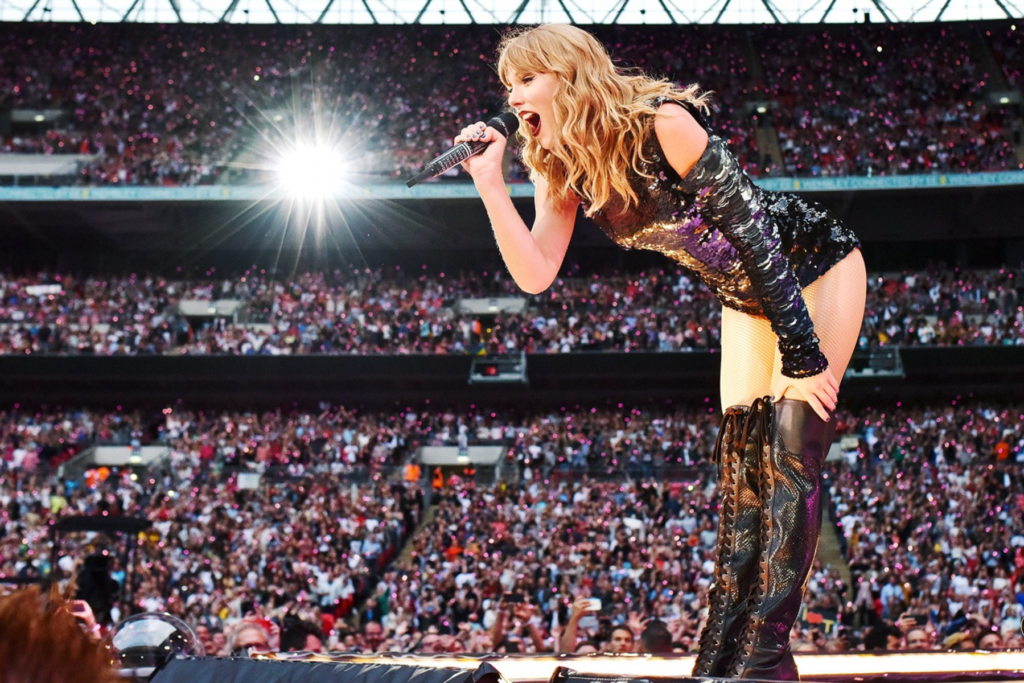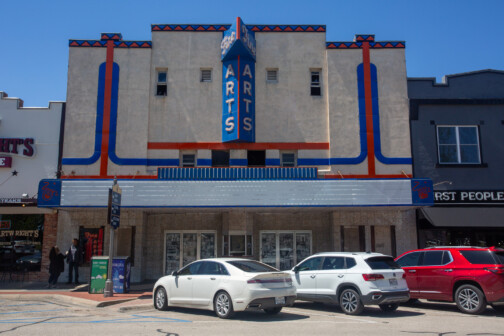This story has been updated to reflect a new total of plaintiffs in the lawsuit.
If there is one ticket sale you wouldn’t want to botch, it would probably be for a Taylor Swift tour—especially if that tour was her first since before the pandemic. But the well-documented failure by Ticketmaster not only angered Taylor Swift fans, it angered Jennifer Kinder in particular. She is a Dallas attorney who tried to get tickets last month.
Swift’s The Eras tour is set to bring 52 shows to 17 states, and Ticketmaster was selling tickets for 47 of those shows. A series of presales, the company admits, melted down after it failed to anticipate just how popular the tour would be.
Based on her experience and what she was seeing online, Kinder and her associate, GriffinMcMillin, began gauging interest in a class action lawsuit against Ticketmaster and its parent company, Live Nation. Friday night, Kinder’s suit (California lawyer Dennis Hill also signed on) was filed in California on behalf of 25 people who attempted to purchase tickets for Swift’s tour. Their suit accuses Ticketmaster and Live Nation of antitrust violations and engaging in fraudulent practices during those presale dates. (By Monday evening, the number of plaintiffs had jumped to 50.)
“I was trying to get tickets,” she said. “My daughter and I have been to several concerts.”
Because of the amount of money Kinder had spent on prior concerts and merchandise, she said that she should’ve qualified for a special pre-sale code that was only available to the most hardcore Taylor Swift fans. When she didn’t qualify for that, she thought she would try her hand at the Capitol One pre-sale two days later.
“Ticketmaster gave out 1.5 million codes to the (verified fan) sale,” she said. ”I was waitlisted for the first sale, I never moved to verified code status. So I did the Capital One sale two days later. I waited in line for, I don’t know, four and half, five hours, and every ticket was gone by the time I got through the Capitol One line.”

After the turmoil from the verified fan presale and the Capitol One presale, Ticketmaster canceled the general admission sale that should’ve started on Nov. 17. Ticketmaster said more than 3.5 million people registered for the verified fan sale, but that it used old math to determine just how many would actually go online and buy tickets. The company believed that only 40 percent of those invited to the presale would attend, and that they would purchase an average of three tickets each.
The company said that there was a “staggering number” of bot attacks, as well as from fans who didn’t have codes. That increased the traffic on the site, and roughly 15 percent of customers experienced some kind of issue. All told, 2 million tickets were sold during the verified fan sale, more than any other artist in a single day, the company said.
“You can’t give out more codes for more tickets than you can sell,” Kinder said. “If you just simply do the math, there are 52 venue sites—if you add it all up it’s about 2.8 million seats available.”
Even Ticketmaster admitted that if it had sold tickets based on the traffic on its site during those presale days, “Taylor would need to perform over 900 stadium shows (almost 20x the number of shows she is doing)…that’s a stadium show every single night for the next 2.5 years.”
Jenn Landry, one of the Texas plaintiffs in Kinder’s suit, questions the processes Ticketmaster had in place. She said that she was able to obtain a verified fan code. That didn’t surprise the self-described “Swiftie,” a hardcore fan who has purchased a lot of merchandise and attended at least one show at nearly every Swift tour in recent memory. But what did surprise her was that her husband was also able to get a code, as was her mother’s boyfriend. The day of the sale, she logged in to her Ticketmaster account, and her husband logged into his in a divide-and-conquer strategy. And then they waited.

“I’m at like 25,000 in line,” she said. “He’s at 9,000 or 11,000. I’m doing screenshots and something just wasn’t adding up. He’s on the Friday show. I’m on the Saturday show. Why did I get the Saturday show when I have the higher tier status? How did my husband even get a code?”
Both Landry and Kinder described utter mayhem once the line started moving.
“I’m actually clicking on the tickets clicking on them and they’re just like they’re they’re going—they’re there one second,” Landry said. “They’re not, they’re there one second. Then they’re there one second. And then if you’re able to get them and hit purchase it would error out or it would take you to the pay screen, but then would error out.”
Kinder said she’s heard similar tales from other plaintiffs, and seen the videos on social media from fans.
“We have one plaintiff who tried 41 times to put tickets in her basket,” she said. “At the end of her experience, she had $14,000 charged on her credit card and no tickets.”
The suit accuses Ticketmaster and Live Nation of, among other things, several antitrust violations.
“The thing is about a monopoly, it’s not just about having a certain number of competitors, it’s also how much of a market share you have,” McMillin said. “A monopoly generally has to have at least 50 percent of the market share. I mean, if you control all the stadiums that’s probably 80 percent of the market right there. I’m not an economist, but that really feels like total control of the market.”
Ticketmaster’s parent company, Live Nation, is already under government scrutiny because of antitrust violations in 2019. The U.S. Department of Justice’s settlement with the company extended the length of time Live Nation must follow a list of antitrust agreements that it originally agreed to when it merged with Ticketmaster in 2010. The DOJ also signaled that it will look into this incident, several U.S. senators have announced inquiries, and several more states have announced their own investigations.
Even before the merger, artists chafed at using Ticketmaster for sales. (Pearl Jam famously took on the company in the early 1990s.) With the Live Nation merger, it is nearly impossible for an artist of Swift’s notoriety to organize a stadium tour without negotiating with Ticketmaster.
“If Taylor Swift wants to have a stadium tour, she doesn’t have any options,” Kinder said. “If you want to do a stadium tour and you want to reach as many people as want to see you, you’ve got no options. There’s nothing you can do— you’re 100 percent at the mercy of Ticketmaster.”
Swift said as much in a statement last month, saying that she is protective of her fans and it was “excruciating for me to just watch mistakes happen with no recourse.”
The suit also alleges that the company is in breach of contract, and that it committed fraud in the way it conducted the ticket sales, “intentionally and purposefully” misleading ticket purchasers by allowing scalpers and bots to access the presale, as well as by providing more codes than there were allotted tickets.
“Based on information and belief, Ticketmaster has effectuated this anticompetitive scheme by forcing fans of musicians to exclusively use Ticketmaster for presale and sales prices, which are above what a competitive market price would be,” the suit said. “Ticketmaster has also forced attendees to exclusively use Ticketmaster’s ‘Secondary Ticket Exchange’—i.e., the platform Ticketmaster operates for the resale of concert tickets.”
Both Landry and Kinder are aware that to some, this may seem like a lot of fuss over not being able to attend a concert. But both said that for Swift’s legion of fans, she’s someone they can identify with.
“I have very eclectic musical tastes—a very wide range,” Landry said. “But the one that I absolutely adore is Taylor Swift. I just think she is genuine.”
Kinder said that Swift’s fans just wanted a chance to connect and hear her in person once again. “We’ve just been through a pandemic and we’re all sort of looking for ways to connect, and art and music is a way that we really connect with the world around us,” she said.
But she also had a warning: Other big artists—including Beyonce—will also be gearing up for tours soon, and given Ticketmaster’s stranglehold on the market, there is little to compel them to make the experience any better for those fans, either.
“If the system is not fair for all of us, then it’s not fair for anybody,’’ she said. “So, you know, it’s got to work for all of us or it doesn’t work for anybody.”
Get the FrontRow Newsletter
Author






